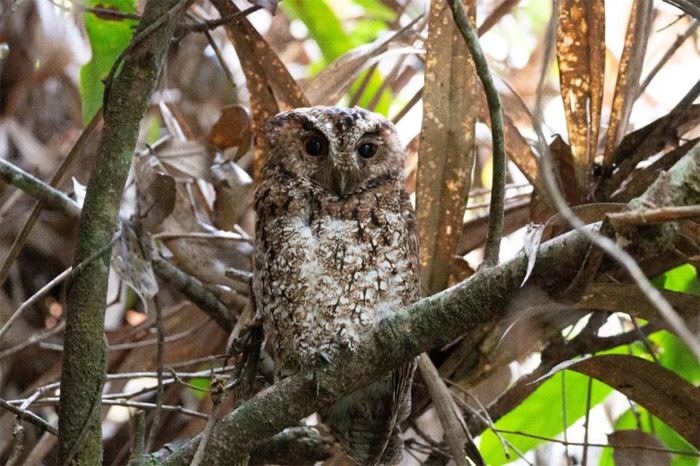Photo above of a Rajah Scops Owl in Borneo (Photo: Andy Boyce)
A round-up of environmental news that’s been overlooked recently.
By Colin Serjent
Worm alive after being frozen for 24,000 years
A microscopic organism has wriggled back to life and reproduced asexually after lying frozen in the vast permafrost lands of north-eastern Siberia for 24,000 years.
The organism found in freshwater habitats across the world, is able to withstand extreme cold. Previous research suggested it could survive for 10 years when frozen at -20 degrees centigrade.
Huge forests have regrown worldwide
Forests larger than the area of France have regrown worldwide since 2000, a mapping study finds. The Trillion Trees project said 145 million acres have regenerated or been restored – but vastly more are being cut down and burned each year, conservationists warn.
Owl not seen for over 100 years caught on camera
An owl feared to have been extinct for more than a century has stunned wildlife experts who photographed it for the first time.
The Bornean Rajah scops owl, native to the forests of Mount Kinabalu in Malaysia, had not been seen since 1892.
Humans outnumbered six to one by birds
Birds outnumber humans by six to one, according to a groundbreaking study, which for the first time drew on citizen science to estimate the global avian population.
At least 50 billion birds from 9,700 species exist around the world, the research by scientists at the University of New South Wales found.
Using sightings logged on the platform eBird, an online database of sightings made by birdwatchers, the team identified the house sparrow, European starling, barn swallow and ring-billed gull as the most common types of bird.
Those four species belong to an exclusive “billion club”, as the only species with populations of more than one billion.
However about 12% of species in the study have a population of fewer then 5,000.
Sharks use Earth’s magnetic field to navigate
Sharks use the Earth’s magnetic field as a sort of natural GPS (Global Positioning System) to navigate journeys that take them great distances across the world’s oceans, scientists have found.
The study could help inform management of shark species, which are in decline. Research found that worldwide abundance of oceanic sharks had fallen more than 70% since 1970.
Illegal tropical forest clearing revealed
Tropical forests the size of Denmark are being illegally cleared every year to provide supermarket shelves with beef, chocolate, soy and palm oil, a study by Forest Trends revealed.
Their report stated that the bulk of the illegal clearing in the past eight years took place in Brazil and Indonesia.
Rare fish returning to its former habitat
A rare fish is returning to its former habitat after an absence of 170 years. The twait shad will be reintroduced to the Severn where Victorian-built weirs had blocked its migration to spawning grounds in Bewdley, Worcestershire.
